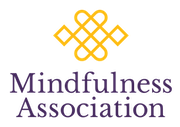“Mindfulness is knowing what is happening, when it is happening, without preference.”
I originally heard this sentence when I was taught for the first time by Rob Nairn. At the time I was new to the world of mindfulness and did not really know who Rob was. However, in the coming years, his teachings, and in particular the words “without preference” were to have a profound impact on me and my life.
This begs the question, what is it about those two words that meant so much? It took me a while to appreciate how fundamental preference is to the human condition, and more personally, how preference was ruling my life and putting blocks in my mindful path.
When we sit to practice mindfulness, the mind is constantly making calculations and judgements. Some may be more obvious (noticing if you are comfy, or uncomfortable), some are more subtle (perhaps hoping we have a “good” practice) and others may pass us by completely (reacting with frustration to a background sound or an arising thought).
These are normal, automatic reactions, but if we are not aware of them, these judgements can increase our discomfort with what is, stimulating ruminative thought. And they do not just happen when we meditate, they are playing out all the time, impacting our mood, behaviour and how we react in any given moment.
Each one subtly shifts us away from acceptance of the present moment into preference. It might be preference for a desired outcome, or for a situation in our life to be different, it might simply be a wish that the background noise would subside. Once we buy into preference, we are no longer accepting the present moment as it is, and we are back into “doing mode”, problem solving, over thinking and the belief that we cannot just let things be as they are.
The brilliance of this teaching is its simplicity. It asks the meditator to reflect “am I stuck in preference right now?”, and when we recognise that we are, we can let go, move into acceptance of what it. This teaching is beautiful – it helps us understand that the situation is not what causes us to suffer, but how we react to it. This movement from preference into acceptance is not passivity, it is the gateway to choice, emotional intelligence and, ultimately, freedom.
If you would like to learn more about the teaching of Rob Nairn, the role of preference and how we can let go of the constant judgment and frustration, why not sign up to the Mindfulness Level 1 course that starts on 24th November and begin your journey.
Click the button for details!


